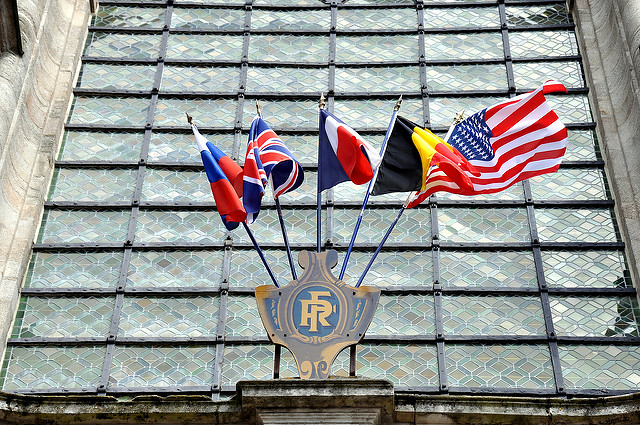For decades America regarded Europe, and especially Great Britain, as our allies from “across the pond.”
Despite our differences in politics and history we have grown closer with our allies in a number of ways. Some say we have even become more like the countries that colonized America than when we were colonies.
a lone superpower
In history, America has been regarded as a lone superpower in the world. The “American Century” heralded an era where the U.S. had a hand, whether direct or by proxy, in almost every conflict in the world defending the ideals of democracy. The young republic, however strong, cannot compare to the storied history of the countries of the European continent. The Europeans created democracy essentially from scratch, but no experiment in the system has been more successful than the American.
The Great American experiment started over 200 years ago and created a national identity, but never a uniform ethnic identity. The culture at-large united a large mix of subcultures from the different ethnicities. Today, America has begun withdrawing from its “world police” role, and the American culture has absorbed a significant amount of color from its strengthened subcultures.
While this trend is not European by racial standards, it is certainly European by social standards. European countries have accepted racially diverse immigrants to the point where their national demographics have shifted. To be English, French or German is no longer exclusive to those of anglo-saxon descent, but to men and women of all bloodlines. The path to globalization has not been without its fits though.
an intersection
The politics of the different continents have come to an intersection. Advocates of globalization pressure both continents’ leaders to accept larger numbers of immigrants. Those immigrants are refugees, professional workers and traditional migrants. The sharper increase in population creates a larger pool of job applicants and without more job openings, and despite more qualified workers, more individuals become unemployed. This has been most pronounced in the American midwest with blue-collar manufacturing jobs which have been “shipped overseas” for cheaper labor in Asian countries. Sometimes, labor has been “shipped” here like in the case of Disney. In Europe, some Muslim immigrants create their own neighborhoods to the point where civil law is cast aside for Sharia Law.
The response to these similar issues have spawned a very similar set of responses from both sides of the pond. The greatest comparison comes from the nationalistic attitudes stemming from native concern with the sudden change. They are embodied in the candidacy of Donald Trump in the U.S., the Front National party in France and the UKIP in Britain, among others throughout the continent.
national and ethnic traditions
Each champions’ pride in the national and ethnic traditions of decades past, coupled with a rejection of globalism in all its manifestations. As the right mirrors European nationalism, so too the left in America has taken a sharp turn towards Democratic Socialism, already well established in Scandinavia, with the candidacy of Bernie Sanders. American politics no longer holds a traditional divide between conservative Republicans and liberal Democrats. The main divide is between nationalists and democratic socialists. Both argue for bigger government.
With the recent attacks in Brussels, the call for a strong man, or woman in the case of France’s Marine Le Pen, in the Western world will only grow louder. For believers in small or limited government, the future of political debate and governance is troubling.







